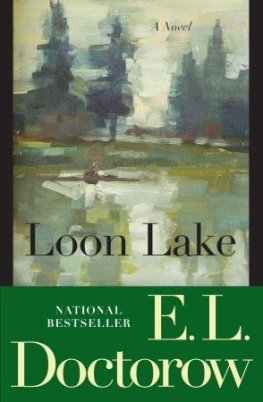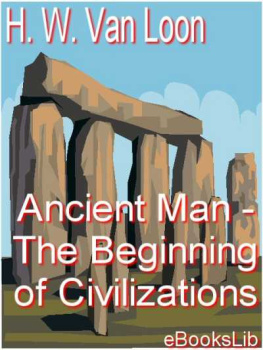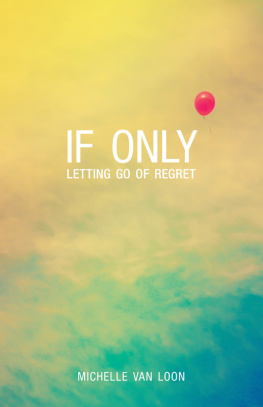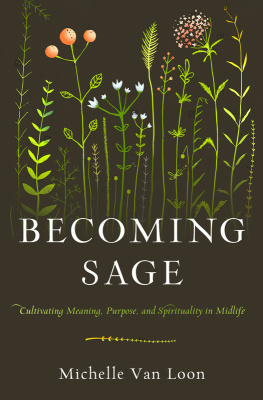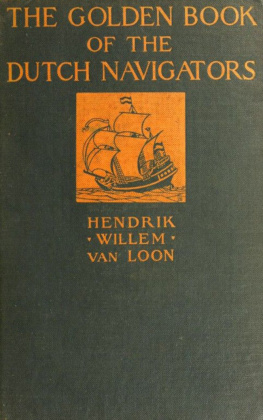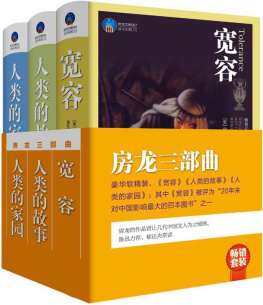
The
Thinking
Woman
JULIENNE VAN LOON is the author of three critically acclaimed novels: Road Story, Beneath the Bloodwood Tree and Harmless. She lives in Melbourne, where she holds a Vice Chancellors Senior Research Fellowship with the writing and publishing program at RMIT University. Juliennes honours include the Australian/ Vogels Literary Award and an appointment as Honorary Fellow in Writing with the University of Iowa. The Thinking Woman is her first work of non-fiction.
For Francis
The
Thinking
Woman
Julienne van Loon

A NewSouth book
Published by
NewSouth Publishing
University of New South Wales Press Ltd
University of New South Wales
Sydney NSW 2052
AUSTRALIA
newsouthpublishing.com
Julienne van Loon 2019
First published 2019
This book is copyright. Apart from any fair dealing for the purpose of private study, research, criticism or review, as permitted under the Copyright Act , no part of this book may be reproduced by any process without written permission. Inquiries should be addressed to the publisher.
ISBN: 9781742236308 (paperback)
9781742244488 (ebook)
9781742248943 (ePDF)

A catalogue record for this book is available from the National Library of Australia
Design Josephine Pajor-Markus
Cover design Sandy Cull, gogoGinko
Cover images Painted Scenes (14), Katrien de Blauwer, www.katriendeblauwer.com. Courtesy Galerie Les Filles du Calvaire
All reasonable efforts were taken to obtain permission to use copyright material reproduced in this book, but in some cases copyright could not be traced. The author welcomes information in this regard.
This book is printed on paper using fibre supplied from plantation or sustainably managed forests.

This project has been assisted by the Australian Government through the Australia Council, its arts funding and advisory body.

This project has been supported by the Victorian Government through Creative Victoria.


Contents
It falls to us now to go on thinking Think we must. Let us think in offices; in omnibuses; while we are standing in the crowd watching Coronations and Lord Mayors; Shows; let us think as we pass the Cenotaph; and in Whitehall; in the gallery of the House of Commons; in the Law Courts; let us think at baptisms and marriages and funerals. Let us never cease from thinking what is this civilization in which we find ourselves? What are these ceremonies and why should we take part in them? What are these professions and why should we make money out of them? Where in short is it leading us ?
Virginia Woolf
Foreword
by Anne Summers
We women are so accustomed to having unfriendly or even abusive adjectives and epithets hurled at us that it is a rare, and very welcome, experience to be described as thinking. It is, when you think about it, so unusual, contradictory even, that it is startling. Instead of the usual descriptions bitch, aggressive, shrill, ball-breaking that portrays us as upsetting the natural order of things, we are characterised as thoughtful, as people who want answers to the big questions of life.
This book aims to connect philosophical thinking and everyday life and Julienne van Loon has done this in an intriguing way. The book is partly a memoir, telling often disturbing stories of her childhood, becoming a mother, joining the academy, leaving a long-term relationship, losing a best friend to a violent end, travelling, learning, thinking. It is also an exploration of the themes that have preoccupied her in life and at work and which are the organising themes of this book. The six chapters explore love, play, work, fear, wonder and friendship, through interviews with thinking women and stories of her own experiences. It is an absorbing and, at times, challenging brew. I found myself stopping to think on almost every page as ideas swirled up in new ways, or new contexts, and forced me to ask the same questions of myself that van Loon was asking as part of her meditation.
It is an energising and provoking experience and that it is so unfamiliar is a testament to the originality of this book. We are not used to such philosophical explorations being linked to the stuff of everyday existence, yet we should be. How else do we arrive at understanding, or enlightenment? At the insights that brace us to continue to propel ourselves forward? There are many in this book but perhaps the one that resonated most with me was the description of friendship as a project that has no end. What a perfect way to think about the wonderful, rewarding yet often infuriating relationships we have with our close friends. I am still turning this thought around in my mind and using it to examine the friendships I value.
Of the six thinking women she interviews, only one, Nancy Holmstrom, she says, can be labelled a capital P philosopher in that she is employed as such at a university. The others are the novelist Siri Hustvedt, the feminist philosopher Rosi Braidotti, the media studies professor Laura Kipnis, the writer and historian Marina Warner and Julia Kristeva, a psychoanalyst, novelist and feminist philosopher. But they are each women who continue to think deeply about the fundamental questions of life and who were willing to share their thoughts, as well as their precious private time, with their Antipodean interrogator. The result is a fascinating book that will have us all thinking, whether or not we are women.
Introduction
The thinking woman exists: she is alive and well. Browsing through the philosophy sections of some of the worlds best bookshops, and indeed through the staff listings in philosophy departments at any of our most prestigious universities, one has to be sharpeyed and persistent to find her. Sometimes, she has been cast out from capital-p Philosophy as a discipline and a category. Often, she was never admitted to those schools in the first place. In fact, the thinking woman can frequently be found having a better and more playful time elsewhere: she is with and amongst the novelists, artists and activists; she has flourished in the social sciences and humanities more broadly; or she has made it on her own as an independent scholar. Life, for the thinking woman, can be messy and complicated. She is and is not a philosopher. She is rarely a household name. When she gets too powerful, there is a remarkably consistent method for bringing her down: a combination of ridicule, smear campaign and forced exile. These are some of the reasons why her work has so much to offer.
Six years ago, I set out to write a book profiling living female philosophers, a book I hoped would work to connect philosophical thinking and everyday life in a manner that values and validates the work of some of our leading female philosophers, and that speaks to those of us trying to make sense of how to live now. I had particular themes in mind: love, friendship, work, play, fear and wonder. I had questions, too. Is love a good investment? In what form should women participate in work under capitalism? How necessary, how vital, is friendship? I began reading widely, in earnest. I began to wonder who we might define as a female philosopher.
Next page


